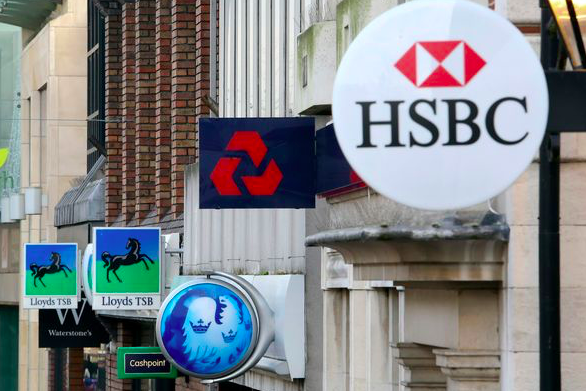Highstreet banks should be compelled to lend in all the communities from which they are taking deposits, says Gareth Thomas MP.

It’s results week for Britain’s banks. There will be news of high executive pay, big bonuses and fines for past bad behaviour, and the banks will want to project robust financial strength. But the billion pound figures will disguise two truths they don’t want us to notice.
They’re pulling out of more and more communities – particularly the poorest ones – and their control of the market means less innovation, less competition and less transparency.
Quietly banks are closing branches left, right and centre; shutting them down in poorer areas in particular but any shopping centre seen as marginal knows the bank branches are at risk. It means that some communities are facing ever more difficult access to a bank branch.
Thamesmead in south London, a community of around 50,000 people, has no bank branch and local residents can expect a bus journey of around 30-45 minutes to get to their nearest branch.
Banks can point to the fact that a larger proportion of banking is now done online, but some financial products do still require a face to face meeting.
Unsurprisingly, Thamesmead is a place where high cost doorstep and payday lenders are doing well. There are many similar communities.
It isn’t just individuals who lose out. The Campaign for Community Banking Services has argued bank closures contribute to the commercial decline of an area, as better off customers change their purchasing habits and begin to shop, bank and even socialise further afield.
Closures are associated too with a drop in local bank lending. Growth in lending to small and medium sized enterprises declined by an average of over 60% in postcodes that lose a bank branch; the figures rise even higher for postcodes that lose the last bank in town.
We have one of the most centralised banking systems in the world. The Competition and Markets Authority too recognised that banking is in need of a shake-up and that there isn’t enough competition, innovation or transparency in our banking markets.
In short, there isn’t the range of local and community banks alongside the big banks here that there are in Germany or the United States for instance.
We need much greater transparency and information about where banks are lending, and to who; and we need to build up a network of community banks to fill the gaps the biggest players in the market are unwilling or unable to meet.
In the US banks were discriminating against people who lived in what were perceived to be lower income or ethnic minority areas. Civil rights activists demanded action and the ‘Community Reinvestment Act’ (CRA) has helped to force banks to prove they’re offering a service to all.
In Britain, the banks need holding to account about their activity or lack thereof in the poorest communities. If you living in a poorer area the banks still want your deposits but they’re much less enthusiastic about offering you a branch you can visit.
A British version of the CRA which requires banks to prove they are lending in all the communities from which they are taking deposits is essential. It would mean banks have to publish detailed data, all anonymised, about how much they’re lending, where, and at what rates.
Where banks don’t want to lend themselves they have to support community banks and credit unions. It has meant a huge increase in the activity of community banks across the US and is strongly supported cross-party and by the Federal Reserve.
It has also reversed the discrimination by banks about which areas they lent to and where they set up branches. Santander has just announced a 50% increase in its ‘community lending’ which simply wouldn’t have happened without this legislation, but they have made no similar commitment here in Britain.
Whilst Brexit dominates the parliamentary landscape in the coming months there is very little domestic legislation in the pipeline, but the Financial Guidance Bill does provide the opportunity to make the case for reform in Britain to help stem the slow withdrawal from less well-off areas by Britain’s biggest banks. Voluntary reporting won’t work, it’s time to force banks to help serve all communities in our country.
Gareth Thomas is a British Labour Co-operative politician who has been the Member of Parliament for Harrow West since 1997 and the Chair of the Co-operative Party since 2001.
To reach hundreds of thousands of new readers we need to grow our donor base substantially.
That's why in 2024, we are seeking to generate 150 additional regular donors to support Left Foot Forward's work.
We still need another 117 people to donate to hit the target. You can help. Donate today.



